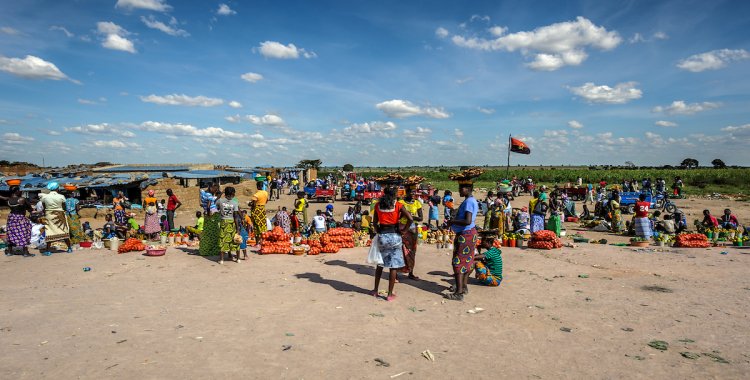Luís Epalanga, who was speaking at a press conference about the evolution of the Gross Domestic Product (GDP), in the first quarter of 2024, highlighted that data on the performance of the non-oil sector, namely agriculture, fishing, diamond mining and industry, in the second quarter this year, are nearing completion.
"When we have these more accurate numbers we will be able to have more concrete data (...), but it is close to 3 percent in the second quarter," he said.
The national economy recorded growth of 4.6 percent in the first quarter of the year, in annual terms, the biggest increase seen since the first quarter of 2015, according to data from INE.
According to Luís Epalanga, essentially since May there has been a positive impact, especially in the productive sector, with emphasis on agriculture, on the inflation trajectory.
"Inflation in February was 2.58 percent, then it went to 2.54 percent, we reached a peak of 2.61 percent again, due to the adjustment in transport prices, and it stabilized last month at around 2.41 percent, and our forecasts for the month of June are that it will be very close to two or well below that", he highlighted.
The government official highlighted that if "production levels that are reflected by GDP are maintained in a sustained manner" and positive sequential growth, "the general price level will certainly stabilize or at least have a downward trend".
"The fundamental thing was to focus on maintaining production levels so that it then has an impact on the availability of goods and has an impact on the price level of widely consumed goods", he stressed.
Luís Epalanga highlighted that if the country continues to see positive growth rates, as has been happening since the third quarter of 2023, it will generate income for families and contribute to reducing unemployment levels.
The Quick Information Sheet (FIR) referring to the National Accounts for the first quarter of 2024, in relation to the previous quarter, indicates that GDP grew 2.1 percent, considering the seasonally adjusted series, with positive performances in construction, transport and storage, in addition to the oil and natural gas sector, which is most prominent.
GDP in the first quarter of this year totaled 18,327,957 million kwanzas, of which 180,473 million kwanzas were due to taxes on products, net of subsidies.
The activities that contributed most to the performance of economic activity in this period, according to IBGE, were the extraction and refining of crude oil and natural gas, with 30.4 percent, and trade (26.8 percent).







